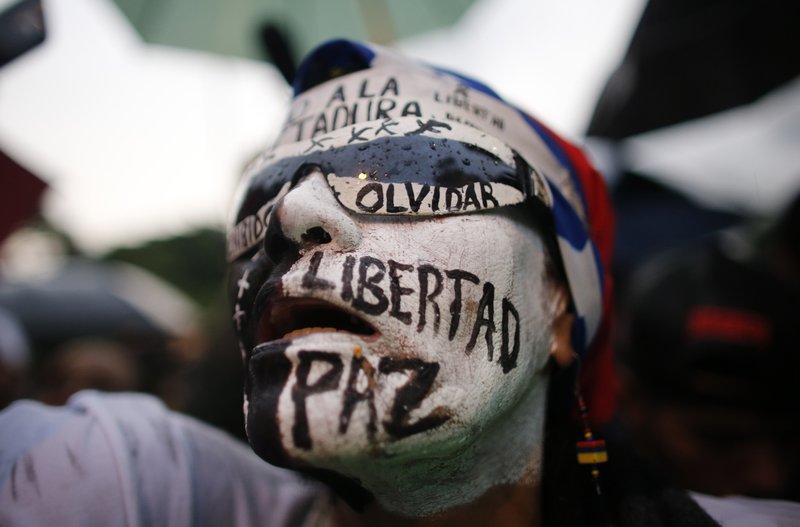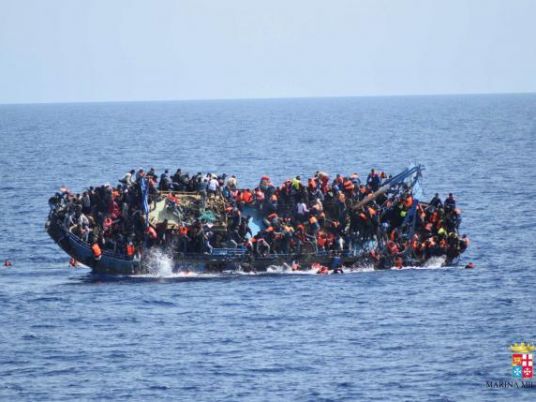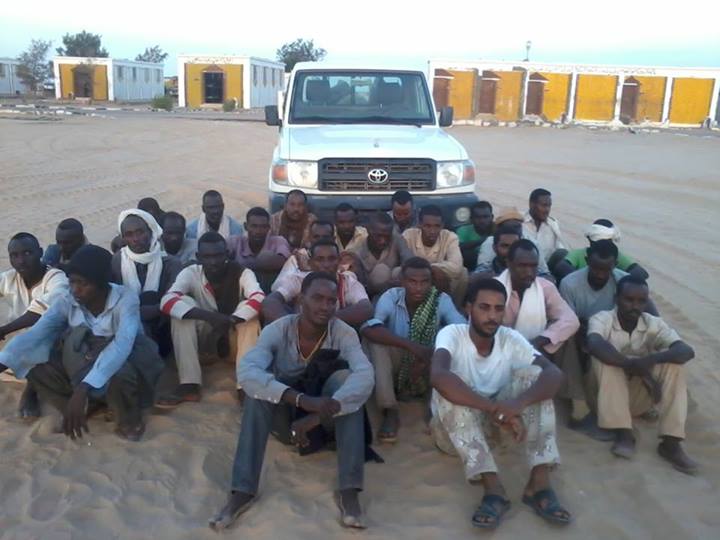Jerusalem–Israeli refugee rights advocates have voiced grave concern about an edict issued by a group of rabbis banning the renting of apartments near Tel Aviv to African asylum seekers.
The edict has already resulted in some refugees being informed that within days they will have to leave their apartments in the Tel Aviv suburb of Bnei Brak, according to asylum seekers who live there and the Hotline for Migrant Workers, a Tel Aviv advocacy group for migrants and refugees.
Seven rabbis in the area published a ruling last week calling on landlords to refrain from renting to ''illegal residents and their ilk.'' The rabbis wrote that an influx of asylum seekers to the Pardes Katz neighborhood of Bnei Brak had reached ''horrific proportions.''
''Today the situation is awful and terrible, such that throughout the neighborhood those same people, some of them idle, cause not only harassment but even worse things,'' wrote the rabbis. Among the signatories was rabbi Dov Domb, a justice in the Tel Aviv rabbinical court.
Bnei Brak municipality spokesman Avraham Tanenbaum said the African influx was causing ''nightmares for the residents of the neighborhood.''
''I don't want to generalize about everyone but there have been attacks and there have been cases of theft,'' he said. ''There are among them some people with problems. Not everyone.''
G., an asylum seeker from Eritrea who has lived in the area since crossing to Israel through the Sinai Peninsula in 2007, said, ''over 90 percent of the people are peaceful and respectful. In any society you can find individuals who aren't.''
According to G., about a thousand African asylum seekers live in Bnei Brak, many of them ''people with children who want a peaceful place to live their lives.''
G., who works in a shop in Tel Aviv, said that as a result of the rabbinical edict ''some landlords have informed people they must leave their apartments after two or three days without any preparation or chance to find alternatives.''
''There is nowhere for the people to go. It's disastrous," he said, adding that he is personally ''very worried'' he will lose his apartment because of pressure on his landlord to evict asylum seekers, even though his landlord has always treated him well.
In July, fifty liberal Israeli rabbis, affiliated with the Rabbis for Human Rights organisation, condemned a similar edict by a group of Tel Aviv rabbis. The fifty wrote that banning rentals to asylum seekers contradicts Jewish biblical values and is reminiscent of persecutions of Jews, including by Nazi Germany.
"The tradition of Israel comes out against the natural human tendency to hate the stranger and those who are different,'' the liberal rabbis wrote. They quoted Leviticus 19:34 from the Old Testament: ''The stranger that sojourneth with you shall be unto you as the homeborn among you, and thou shalt love him as thyself for ye were strangers in the land of Egypt. I am the Lord your God.''
But the Bnei Brak municipality last week decided on taking a series of steps against the asylum seekers. This includes cracking down on landlords who divide apartments so that up to ten people can live in a unit.
Henceforth landlords engaging in such behaviour will be taken to court with the aim of forcing them to pay large fines, the municipality said. Also, landlords will be required to obtain a business license if they rent to a large number of asylum seekers, the municipality decided.
Bnei Brak leaders are also weighing up publishing the names of landlords who let to asylum seekers so that the public knows ''the identities of those who prefer their personal and financial interests despite the severe and unfair blow to the general public.''
This is no idle threat in the insular haredi, or ultra-orthodox, society where the rabbis' edicts are seen as the reflection of divine law. Sanctions could include being shunned by neighbors commercially and socially and being excluded from participation in religious rituals.
About 27,000 asylum seekers have crossed into Israel from Egypt since 2005, with Eritreans making up the largest group, followed by Sudanese.
While the asylum seekers say they fled persecution in their home countries and maltreatment in Egypt, Israeli Interior Minister Eli Yishai, head of the ultraorthodox Shas party, insisted on Tuesday that all but ''0.01 percent'' come for economic reasons.
G. said he fled Eritrea because of its ''tyranical government violating all our rights and freedoms,'' including imposing unlimited military service on males. He passed through Egypt for a week on his way to the would-be Promised Land.
Yishai is urging that as of 1 January, asylum seekers be denied the opportunity to work in the mostly menial jobs many of them currently have. Authorities have already begun stamping their passports with notes to that effect to deter employers, who will be subject to fines.
''To whoever thinks I am an extremist, I can send some Sudanese to their neighborhoods and then we will see what they say,'' Yishai said during a meeting concerning policy on migrant workers and asylum seekers in the Knesset on Tuesday.
Meanwhile, Israel on Monday began work on a border fence along the frontier with Egypt, intended to keep out African migrants and refugees. The fence is expected to cover 87 miles of the boundary and will be backed up by an electronic barrier.
AP quoted senior defense ministry official Udi Shani as telling Israeli Channel Ten television that the fence was part of a greater strategy to reduce the number of illegal migrants, which will include the building of a giant holding room and returning migrants to their home countries.
Johannes Bayu, director of the African Refugee Development Center in Tel Aviv, said people move to Bnei Brak not by choice but rather because it is one of the few areas they can afford.
''All the refugees there are eager to work and be productive,'' he said, and characterizations of violence and criminal activity ''are exaggerated by the police, the government, by anyone who wants hatred to spread.''
Of the rabbis' edict, he asked, 'If they don't rent to them, where will they live?''
"This is sad and scary. This is how things begin. It could lead to violent attacks if people decide they don't want to see them on the street at all. Everyone [in power] is quiet now and that's what scares me. The government, the municipality, those who are influential, they have to object to this hatred through the strongest means."




